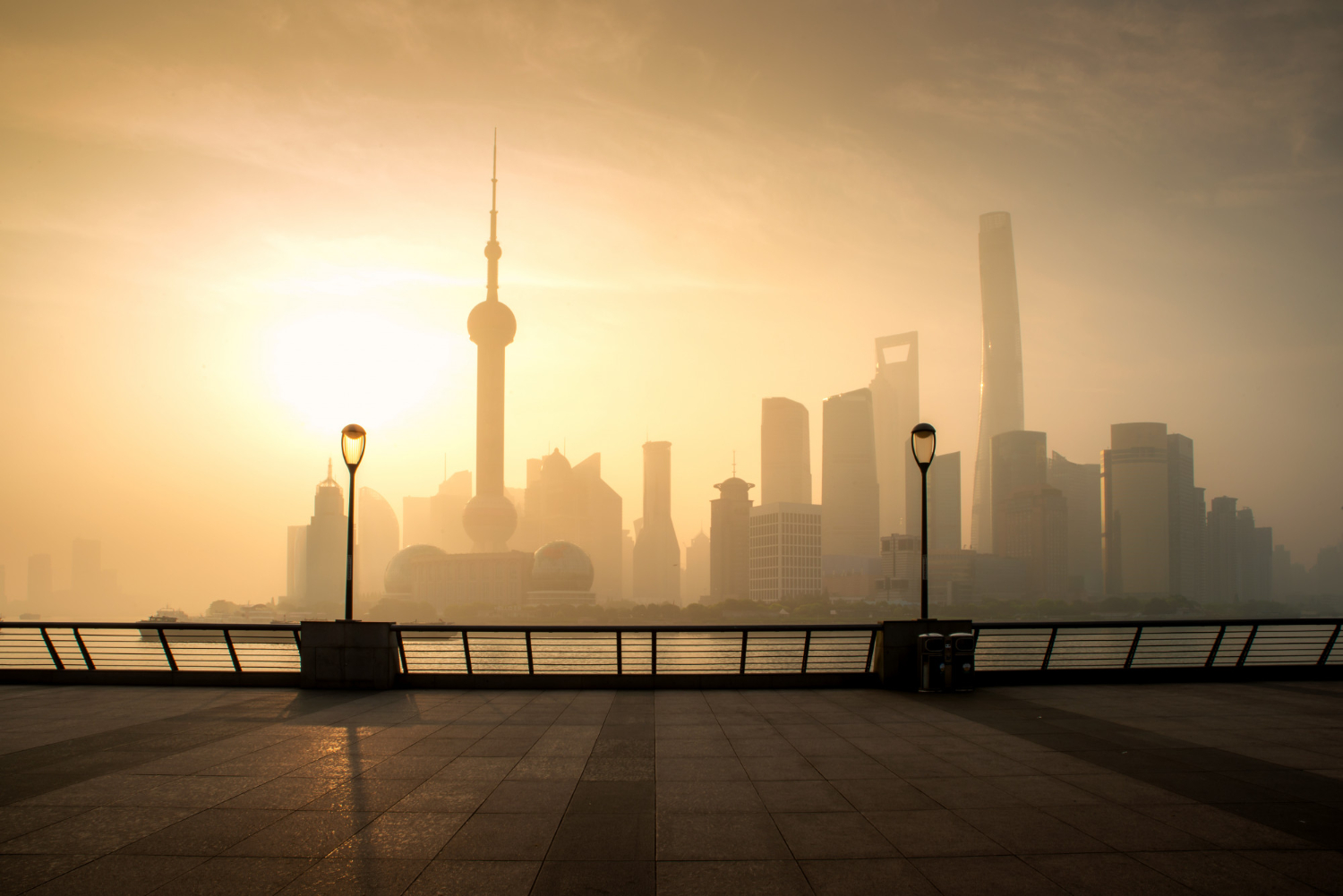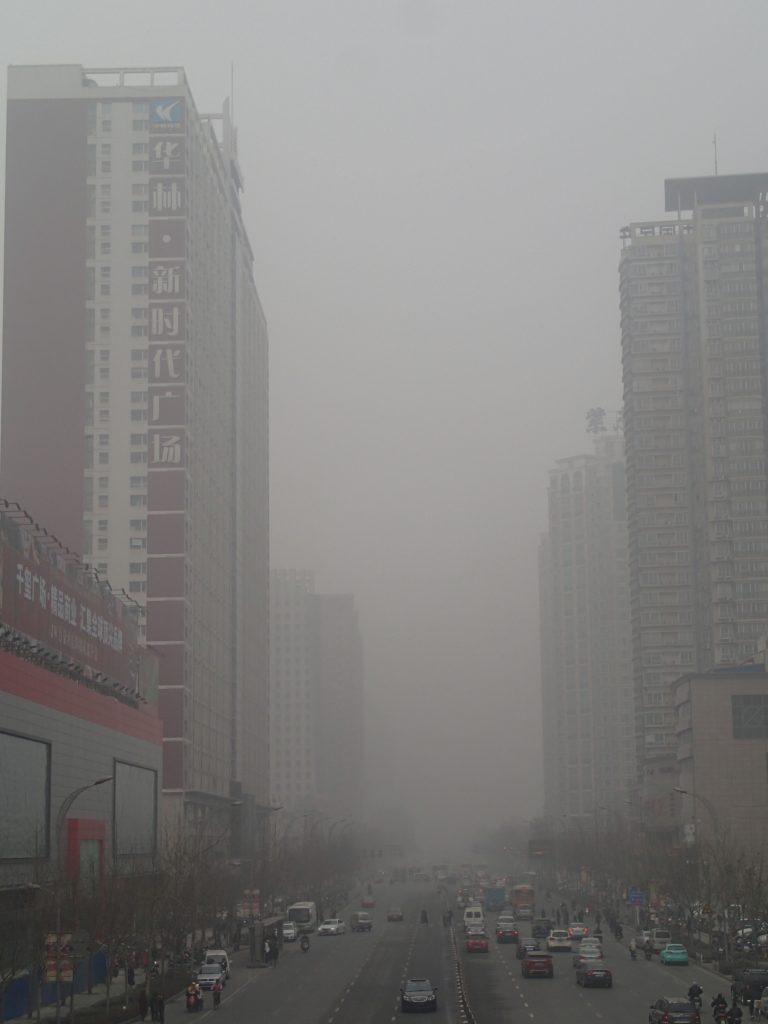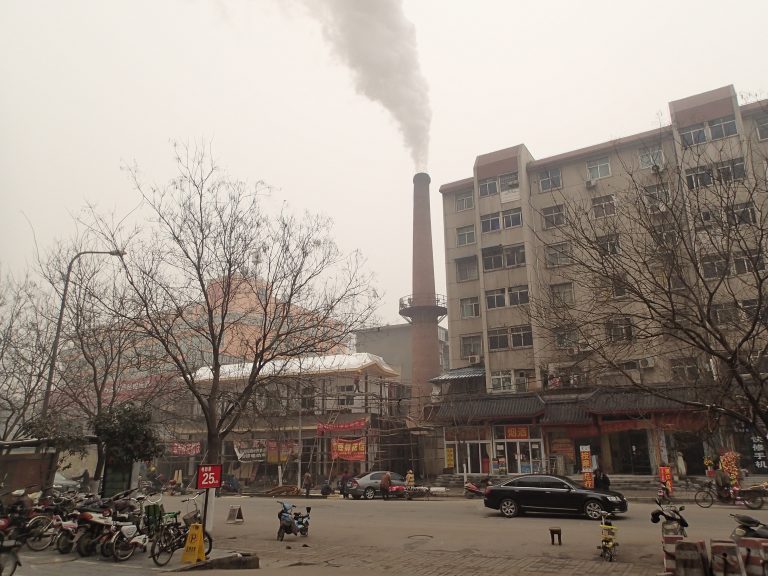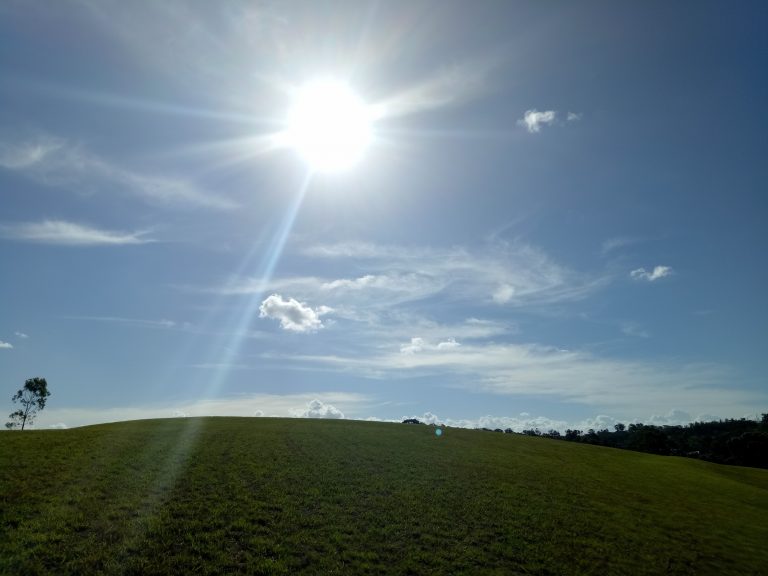Cultural Differences: Sunshine versus Pollution
In a brief stopover in Australia, a consultation with a local Beijing-born GP turned to discuss the weather in China.
Not wanting to touch on a sensitive topic, I remarked, “Chinese weather is overcast all the time.”
He was quick to respond, “It is not overcast. That is pollution!”
I quickly agreed.
I knew the truth of the matter as well.
China is one of the only few countries where when you fly across the maritime borders into its territory, you can see the endlessly long cloud of smog and pollution you are about to fly into, and then as you submerge into the cloud, you say goodbye to the blue skies and fresh air shared by the rest of the world.
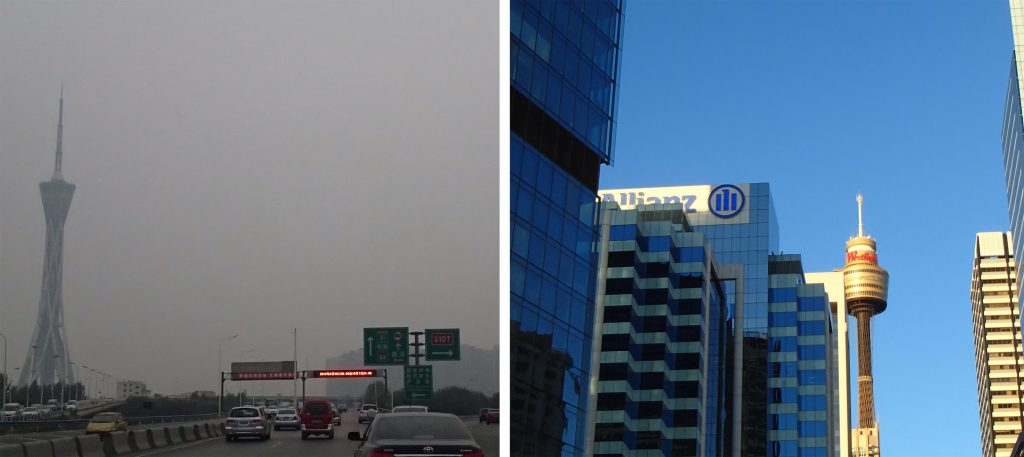
Which Chinese Cities Suffer More From Pollution?
The next ten minutes we battled over which Chinese city was more polluted.
I tried to defend Guangzhou weather, saying, “It is not too bad in terms of pollution. Zhengzhou was horrible. Every block you walk around, there is a factory with a big chimney spewing out pollution over all the apartment blocks and shops.”
Money In Environmental Politics
We both came to the same conclusion, that money was the main cultural reason behind environmental pollution in China.
Australia values the health of its people over company profits. Unlike China, there are few state-owned enterprises in Australia, so the security of government jobs does not incentivize mass-scale pollution to the detriment of a large swathe of its population.
He shared, “Shenzhen is just as bad as Beijing.” That is what he heard about China recently. It is probably true.
Australia on the other hand has blue skies as far as the eye can see. On a clear night in Australia, you can see the vivid stars and full moon shine down. It is a majestic sight to be able to see, but one that would never be seen in China in this day and age.
Economic And Political Factors Driving Pollution
The GP and I also discussed the American tariffs on Chinese goods. We held an optimistic hope that places like Zhengzhou will have far less factories to pollute Chinese people with if cost increases imposed by American tariffs forced the closure of Chinese manufacturing plants.
The loss of environmental pollution would be a win for Chinese air quality.
The Ever-Present Australian Sun
On the return trip home, I took a photo of the sunny blue Australian skies, and sent it to my girlfriend in China with the caption, “The sun chases everybody in Australia.” It is true.
No matter where you go, you look around and see the sun beating down on you saying, “Hello, welcome to the happy world.”


Diary Of A Mad Chaos is a daily diary written from March 1996 until today, of which individual books and book series have been created, namely “The Lost Years” an exploration of young, entwined love, the “Wubao In China (猎艳奇缘)” book series which provides an extensive comparative analysis of the cultural differences between Eastern and Western societies, and the book titled “Foreigner (华人)” an exploration of race relations in Australia.


